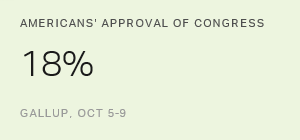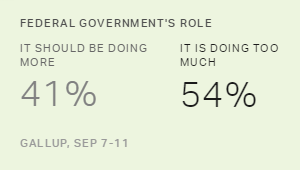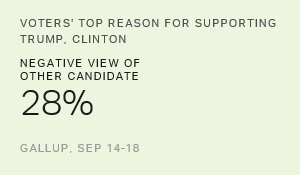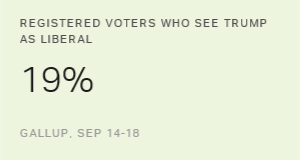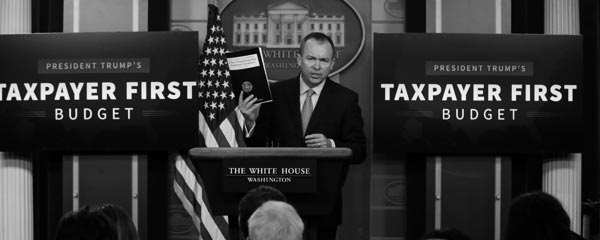Story Highlights
- In final measure before Election Day, Congress approval at 18%
- Republicans remain least approving of Congress
WASHINGTON, D.C. -- With less than a month to go before the U.S. congressional elections, 18% of Americans approve of the job Congress is doing. This rating has been low for some time, and has not cracked 25% since 2009.
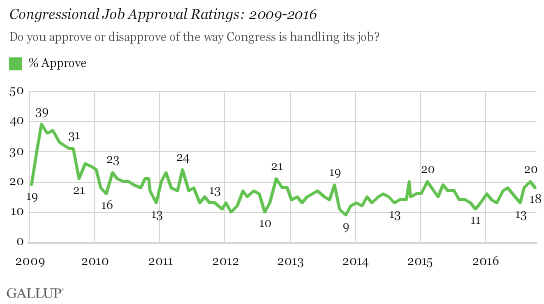
The latest figure, from an Oct. 5-9 Gallup poll, represents Americans' final job approval rating of Congress before the November elections, and is similar to the ratings found in final pre-election polls in 2008, 2010, 2012 and 2014, when Congress approval ranged between 18% and 21%.
Republicans Remain Least Approving of Congress
Supporters of the majority party in Congress tend to rate the institution more favorably than do supporters of the minority party, but the GOP bucked the trend when its supporters' approval did not improve after the party took the second chamber of Congress in 2014. Despite controlling both the House and Senate, Republicans (14%) are currently less likely than Democrats (22%) to approve of the job Congress is doing.
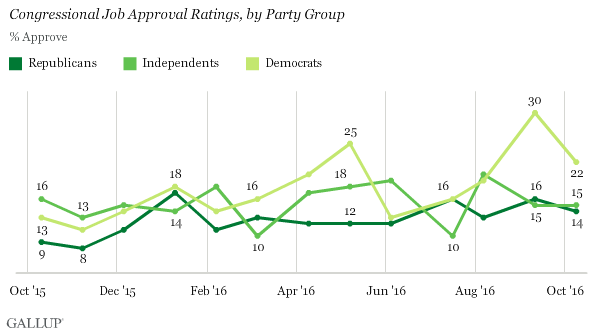
This could reflect the split between conservative and moderate Republicans in Washington that has been palpable throughout Barack Obama's presidency. Regardless of the side on which national Republicans fall, their frustration with this breach could be affecting their approval of Congress as a whole.
Bottom Line
Many political observers believe Democrats have a reasonable chance of regaining party control of the Senate. Republicans, who won many Senate seats in a significant wave in 2010, are defending those same seats in 2016 -- arguably in a less favorable political climate for the party than was the case six years ago. The GOP seems to have a better chance of holding its House majority, though even that could be in jeopardy if a Democratic wave emerges.
Since World War II, Congress' party composition has generally changed most significantly in non-presidential election years, so while individual seats and control of each chamber may be in play, it's likely that the overall party layout of Congress will not change drastically.
These data are available in Gallup Analytics.
Survey Methods
Results for this Gallup poll are based on telephone interviews conducted Oct. 5-9, 2016, on the Gallup U.S. Daily survey, with a random sample of 1,017 adults, aged 18 and older, living in all 50 U.S. states and the District of Columbia. For results based on the total sample of national adults, the margin of sampling error is ±4 percentage points at the 95% confidence level. All reported margins of sampling error include computed design effects for weighting.
Each sample of national adults includes a minimum quota of 60% cellphone respondents and 40% landline respondents, with additional minimum quotas by time zone within region. Landline and cellular telephone numbers are selected using random-digit-dial methods.
View survey methodology, complete question responses and trends.
Learn more about how the Gallup Poll Social Series works.
